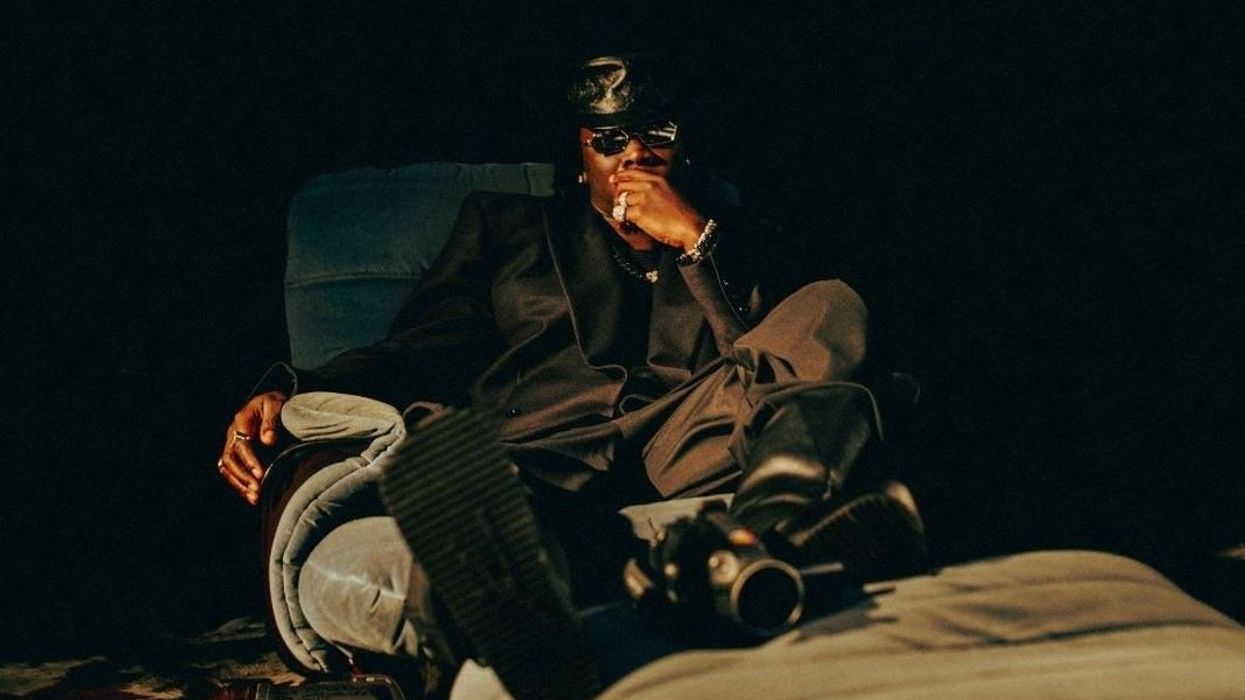
Fiokee released his first album, titled MAN, in 2022, aiming to express his individuality as an artist. This album illustrated his mastery of African music through his guitar, showcasing various sounds. Now, two years later, he is set to unveil Beyond A Guitarist [B.A.G], which further emphasizes his evolution. “I’ve made my mark as a guitarist,” he tells TunesDeck recently, “Now, what comes next?”
Despite being a crucial part of Afropop music, Fiokee often went unrecognized for his contributions. He composed and arranged significant portions of music while guiding artists’ performances, doing much of the heavy lifting in music production. With MAN setting the stage, he feels he is now fully realizing his artistic capabilities with Beyond A Guitarist.
Fiokee reflects on the challenges he faced in gaining collaboration from artists. “Getting them on board was tough,” he explains, noting a reluctance to move beyond the traditional roles. He likens this dynamic to restrictive environments where growth is discouraged. In the music world, he perceives a hierarchy: artists at the top, producers next, and instrumentalists near the bottom. “To elevate from VIP to VVIP isn’t easy, and some view you as encroaching on their territory,” he adds.

Fiokee attributes his unique position to his brand’s recognition. The catchy phrase, ‘oh my God, it’s Fiokee’, became essential in the industry due to his behind-the-scenes work. Over time, this branding evolved, leading artists to actively seek him for collaborations. “You have to sometimes push people to recognize your value,” he says. “Eventually, I grew tired of constantly pursuing artists.”
In Beyond A Guitarist, Fiokee takes a leading role in vocals. The album features 11 carefully curated tracks where he maintains significant creative control. Even when collaborating with various African talents, he remains the driving force. For example, “No Way (Remix),” sees him team up with Johnny Drille to deliver a soothing love ballad.
One standout track, “Fine Girl Today,” serves as the album’s emotional core, highlighting a romantic perspective that celebrates beauty through the eyes of a beloved partner. On the chorus, he asks, “Have you seen a fine girl today?” demonstrating depth while skillfully showcasing his vocal abilities. Featuring remarkable performances by Spyro and Raybekah on “Iz Hawt” and “Pozi”, respectively, the latter highlights Raybekah’s seamless chemistry with Fiokee. She also contributes to the closing track, “Turn It Up,” which is vibrant and engaging.
While embracing his role as a lead singer, Fiokee insists his love for the guitar remains strong. “I’ve been playing for 24 years,” he shares with enthusiasm. “Now, I just add vocals so I can perform my songs more easily. When it’s time for me to sing live, hand me the mic and I’ll do it—guitar in hand,” he affirms.

Fiokee’s musical journey began in the picturesque Akwa Ibom, southern Nigeria, where he learned vocal techniques at the Episcopal Methodist Church with his mother. There, he explored indigenous melodies through songs in Igbo and Yoruba, connecting these sounds with his guitar skills. He explains, “Before I even played instruments, I could interpret notes.”
After leaving his mother’s church due to lengthy services, he joined a different congregation with a more youthful presence, where he participated in the music team. Lacking instruments initially, he tried his hand at percussion, playing various drums. In 1999, the then 42-year-old Ifiok ‘Fiokee’ Effanga graduated from high school and relocated to another city, taking a job as a sales assistant.
His workplace sold high-end toys for children, and with slow business on some days, he sought to fill the time with music. Remembering his musical talent, he decided to learn an instrument. Purchasing a guitar or keyboard was too expensive on his salary, so he opted to rent a guitar for 700 naira (about $32 back then). A taxi driver, intrigued by his green guitar, played it and made Fiokee aware of its potential.
The driver, a guitarist himself, offered Fiokee lessons for 2,600 naira (about $119 at the time), which exceeded his two-month salary. Surprised by Fiokee’s ability to recognize notes by ear—a skill he himself lacked—the instructor helped him learn all he needed in just two months. Remarkably, Fiokee even ended up teaching the instructor music theory a year later.
Working nearby, he interacted with terminal workers from Ibeno who frequented a local restaurant, becoming known as the young boy with a guitar. Many inspired him with musical books, aiding his understanding of music theory—chord structures, their applications across various genres, and the dynamics involved. “After learning these techniques, I started recognizing them in Western music,” he recalls. Traditional melodies in his culture were often simplistic but listening to artists like Don Moen greatly influenced his musical development.
Understanding the Impact of Guitar in Afrobeat Music
Fiokee’s journey into the Nigerian music scene began when he won Star Quest with his group, Diamonds, in 2008. His breakthrough came through his guitar work on D’banj’s “Scapegoat.” This opened doors for collaborations with notable artists like Shizzi and Davido, leading to the hit “Gobe,” among others, solidifying his place in the industry. Working with rising stars such as Kizz Daniel, his guitar skills have brought life to tracks like “Woju” and “Good Times.”
When Simi shifted from gospel to pop, “Tiff” illustrated this transition, with Fiokee’s guitar injecting vitality into the project. He played live guitar throughout the album Simisola, contributing significantly to its classic sound. His work also extends to Adekunle Gold’s debut album Gold, showcasing his talents on tracks such as “Orente” and “Pick Up”.
Fiokee’s guitar can also be heard in other popular songs, including “Duro” and “Wash” by Tekno, as well as “Make Am” by Patoranking. His collaborations also include tracks by Iyanya, Reekado Banks, and Yemi Alade, underlining his significant influence in the industry.
Fiokee’s collaboration with Flavour began with the Thankful album, and he believes his guitar has significantly altered the sound of Flavour’s music, exemplified by songs like “Golibe” and “Sexy Rosey”. He continues to collaborate with Flavour on his latest release, African Royalty.
Recognizing the extent of his influence, Fiokee acknowledges that his work facilitates opportunities for other guitarists who might lack the same recognition. He provides an invaluable sound and spice to Afrobeats, claiming, “Without my guitar, many songs would feel incomplete.” Just as seasoning enhances a dish, he positions himself as a key component of the Afrobeats genre, now even branching into adding vocals to his performances.



Comment